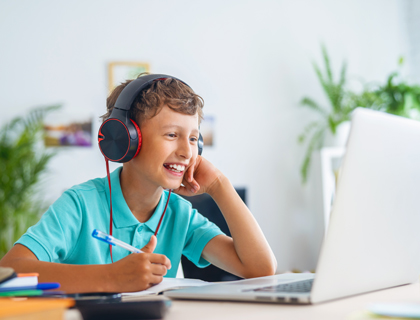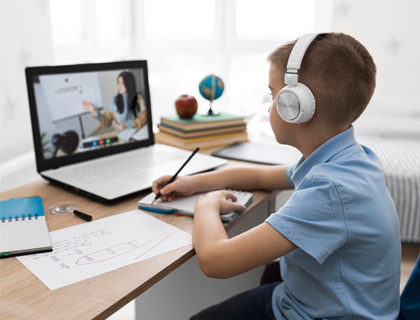Blog details
 How to Preserve Children’s Social Health in the New Normal?
How to Preserve Children’s Social Health in the New Normal?
How to Preserve Children’s Social Health in the New Normal?
It is common knowledge that humans are social being and this not only applies to adults but also children. Without interacting with their fellow beings, humans cannot have all-round development in their lives. Social relationships and interactions play a crucial role in shaping the emotional intelligence (EI) and social skills of an individual. The pandemic-induced lockdown has disrupted numerous kinds of interactions that kids had in their normal routine. Right from the school-bus helper to the canteen aunty, children were exposed to a variety of social encounters during the day. Online classes have tried to fill up some of the learning void. But when it comes to social skills, a severe blow has been dealt.
The peer group forms a key component of every child’s socialization after the family. Going to school together, chatting in between and after classes, arguing over the ball in the playground, synchronizing visits to the washroom, all seemingly silly, schoolchildren indulgences are actually essential for a child’s social health. Virtual classes hardly make it possible for students to converse with friends and classmates. Even the quality of interaction with the teachers suffers when it is just through a device. Parents can fill in this gap only in a limited manner if they themselves are working. Moreover, children, especially adolescents, are not always comfortable with parents for the kind of interactions they have with peers. The situation is grimmest for the new entrants who would perhaps grow up never knowing what it is like to step into a new school campus for the very first time.
Every adversity comes with its own hidden opportunity. In the present one, parents, educators and academicians can come up with innovative solutions to enable as much social interaction as possible while not compromising on safety. Parents must be on the lookout for any tell-tale signs of social stunting in their children.
Now that things have almost gone back to normal except perhaps continuing closure of schools in some places, short weekend trips would be a great idea for adults and kids both. Sleepovers with few friends at home could be arranged as well so that some in-person interactions among children and teenagers can take place. At least an hour of physical activity must be encouraged each day. Teachers must also make their online classes interactive and fun by planning interesting activities and games for young students and creative pedagogies for the older ones. Instead of them doing most of the talking in class, teachers should encourage the students to share their thoughts on various issues, both academic and non-academic, subject to minimum disciplinary bounds. Special classes for cyber security measures with both parents and students is a necessity now that kids are having to negotiate virtual world much more than before. Frequent screen breaks, cultural activities like music, dance and skits could intersperse teaching. It is also a good time for schools to diversify curriculum and reconstruct teaching methods. The emphasis should shift away from rote learning to critical and analytical skills. Many schools are adopting open-book tests to cultivate independent thinking and promote application of conceptual understanding.
The past two years have been tough for all. While adults usually are in a better position to cope with radically new circumstances but children take their time to adapt. They need some hand-holding to prevent the new normal from hampering their social life for good. Parents, elder siblings and teachers are the best persons to step in, in this regard.



